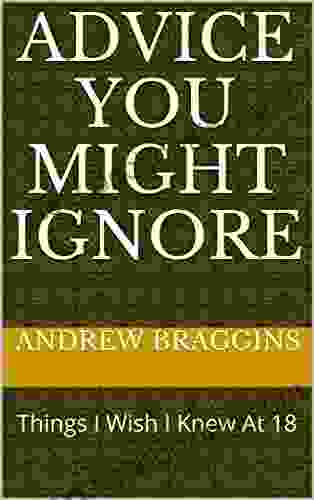Capital and Ideology: A Monumental Work by Thomas Piketty


4.7 out of 5
| Language | : | English |
| File size | : | 76987 KB |
| Text-to-Speech | : | Enabled |
| Screen Reader | : | Supported |
| Enhanced typesetting | : | Enabled |
| X-Ray | : | Enabled |
| Word Wise | : | Enabled |
| Print length | : | 1093 pages |
A Comprehensive Examination of Wealth and Inequality
In his groundbreaking work, "Capital and Ideology," renowned economist Thomas Piketty delves deep into the historical evolution of wealth distribution and its profound implications for society and politics. This meticulously researched and thought-provoking treatise offers an unparalleled analysis of the interplay between economic inequality, political power, and the ideologies that shape our understanding of both.
Key Findings: Wealth Concentration and the Erosion of Democracy
Piketty's research reveals a startling trend: the increasing concentration of wealth in the hands of a select few. He argues that this trend is inherent to capitalism and poses a serious threat to social mobility, economic stability, and the very foundations of democracy.
Piketty contends that as wealth becomes more concentrated, it translates into political power, allowing the wealthy elite to exert undue influence on government policies and decision-making. This, in turn, leads to the erosion of democratic institutions and the perpetuation of inequality.
Historical Context: From the Middle Ages to the Present
"Capital and Ideology" provides a comprehensive historical perspective, tracing the evolution of wealth distribution from the Middle Ages to the present day. Piketty meticulously examines the rise of capitalism, the Industrial Revolution, and the growth of global finance, highlighting the key factors that have shaped wealth inequality throughout history.
By placing contemporary economic disparities in historical context, Piketty sheds light on the enduring nature of inequality and the challenges that societies have faced in addressing it.
Ideological Distortions and the Role of Education
Piketty argues that ideologies play a crucial role in shaping our perception of wealth inequality and the policies that we adopt to address it. He identifies various ideological distortions that have hindered progress towards greater economic equality.
One of the most significant distortions identified by Piketty is the belief that wealth is inherently meritocratic and that those who accumulate vast fortunes deserve their wealth. This ideology, he argues, serves to legitimize inequality and undermines efforts to redistribute wealth.
Piketty also highlights the importance of education in combating inequality. He emphasizes the need for universal access to quality education as a means of promoting social mobility and reducing wealth disparities.
Policy Recommendations: Progressive Taxation and Wealth Redistribution
Drawing from his extensive research and analysis, Piketty proposes a series of policy recommendations aimed at reducing wealth inequality and promoting greater economic justice.
One key recommendation is the implementation of a progressive wealth tax. Piketty argues that such a tax would help to redistribute wealth and reduce the concentration of wealth in the hands of the very wealthy.
Piketty also advocates for increased investment in public education and social programs as a means of promoting social mobility and reducing inequality.
A Call to Action: Towards a More Just and Equitable Society
"Capital and Ideology" serves as a powerful call to action, urging policymakers, academics, and citizens alike to confront the challenges posed by wealth inequality and work towards creating a more just and equitable society.
Piketty's work provides a comprehensive framework for understanding the complex dynamics of wealth distribution and its impact on society. It is an indispensable resource for anyone seeking to deepen their understanding of these critical issues and contribute to the ongoing struggle for economic justice.
Free Download Your Copy Today and Join the Movement for a More Equitable Future!
4.7 out of 5
| Language | : | English |
| File size | : | 76987 KB |
| Text-to-Speech | : | Enabled |
| Screen Reader | : | Supported |
| Enhanced typesetting | : | Enabled |
| X-Ray | : | Enabled |
| Word Wise | : | Enabled |
| Print length | : | 1093 pages |
Do you want to contribute by writing guest posts on this blog?
Please contact us and send us a resume of previous articles that you have written.
 Book
Book Novel
Novel Page
Page Chapter
Chapter Text
Text Story
Story Genre
Genre Reader
Reader Library
Library Paperback
Paperback E-book
E-book Magazine
Magazine Newspaper
Newspaper Paragraph
Paragraph Sentence
Sentence Bookmark
Bookmark Shelf
Shelf Glossary
Glossary Bibliography
Bibliography Foreword
Foreword Preface
Preface Synopsis
Synopsis Annotation
Annotation Footnote
Footnote Manuscript
Manuscript Scroll
Scroll Codex
Codex Tome
Tome Bestseller
Bestseller Classics
Classics Library card
Library card Narrative
Narrative Biography
Biography Autobiography
Autobiography Memoir
Memoir Reference
Reference Encyclopedia
Encyclopedia Ryan Hawk
Ryan Hawk Sifu Slim
Sifu Slim Mary Gabriel
Mary Gabriel Gary Ginsberg
Gary Ginsberg Pierre Desrochers
Pierre Desrochers Marilyn Easton
Marilyn Easton Mary Antin
Mary Antin Ted Turner
Ted Turner W David Pierce
W David Pierce Rawi Abdelal
Rawi Abdelal Mark Gardener
Mark Gardener Matt Christopher
Matt Christopher Ryan Smithson
Ryan Smithson Mark M Meerschaert
Mark M Meerschaert T Livingston
T Livingston Richard Duncan
Richard Duncan Martin Mosebach
Martin Mosebach Terri Kozlowski
Terri Kozlowski Mary Turner Thomson
Mary Turner Thomson Maud J Mclean
Maud J Mclean
Light bulbAdvertise smarter! Our strategic ad space ensures maximum exposure. Reserve your spot today!

 Lucas ReedUnveiling the Enigmatic Tale: Dive into the Heart-Wrenching Pages of "The Cat...
Lucas ReedUnveiling the Enigmatic Tale: Dive into the Heart-Wrenching Pages of "The Cat... Ervin BellFollow ·2.3k
Ervin BellFollow ·2.3k Sean TurnerFollow ·16k
Sean TurnerFollow ·16k Jedidiah HayesFollow ·13.4k
Jedidiah HayesFollow ·13.4k Kazuo IshiguroFollow ·11.1k
Kazuo IshiguroFollow ·11.1k Jacob FosterFollow ·7.5k
Jacob FosterFollow ·7.5k Ike BellFollow ·10.9k
Ike BellFollow ·10.9k Clarence BrooksFollow ·11.2k
Clarence BrooksFollow ·11.2k Victor HugoFollow ·13.5k
Victor HugoFollow ·13.5k

 Larry Reed
Larry ReedGwendy's Final Task: A Thrilling Conclusion to a Timeless...
Prepare to be...

 Victor Turner
Victor TurnerHow FDR Defied Polio to Win the Presidency
Franklin D. Roosevelt is...

 Edwin Cox
Edwin CoxWinner RGS BBC Journey of a Lifetime Award: An Inspiring...
In the heart of the world's...

 Griffin Mitchell
Griffin MitchellEverything You Need to Know, You Learned From Mister...
Mister Rogers' Neighborhood was a beloved...

 Beau Carter
Beau CarterSeasons of Terror: A Spine-Tingling Odyssey into the...
In the realm of horror...
4.7 out of 5
| Language | : | English |
| File size | : | 76987 KB |
| Text-to-Speech | : | Enabled |
| Screen Reader | : | Supported |
| Enhanced typesetting | : | Enabled |
| X-Ray | : | Enabled |
| Word Wise | : | Enabled |
| Print length | : | 1093 pages |












